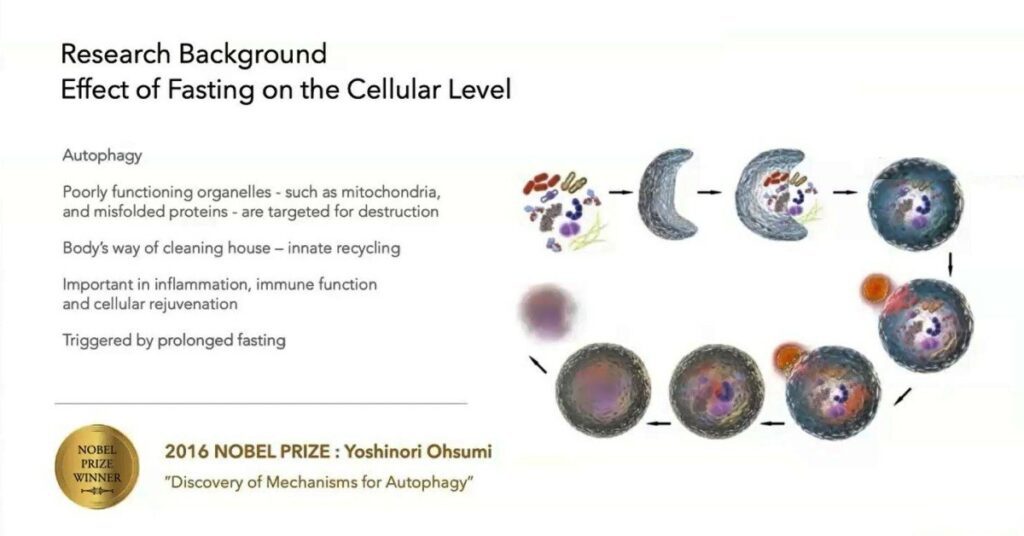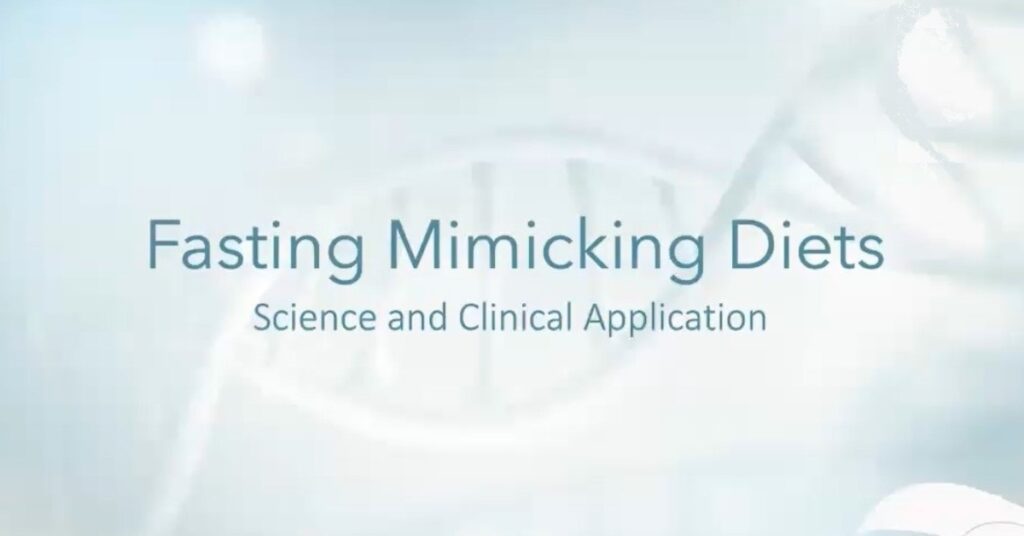There are many factors that go into how each individual ages, nutrition and diet habits being among the most important. A study published in Nature Aging indicates that a significant caloric reduction can slow the pace of aging significantly, probably even more than smoking cessation.
American life expectancy is much higher than it was a century ago. But of course it’s not just the length of time you live that people are concerned with…it’s how you age and the quality of those later years.
Many health experts now focus on “healthspan” rather than just lifespan, putting the emphasis on how people can maintain higher levels of activity and comfort all the way to the end of their lives.
Fasting and Aging in Mediterranean Populations
It’s well-known that the populations who follow a Mediterranean Diet are among the healthiest and longest-living on the planet. When studying their diets, the focus is obviously on the variety of delicious foods. But what is often missed is the role of fasting. In other words, the intentional, or often unintentional, scarcity of food.

Either for religious reasons or for the simple lack of abundance, inhabitants of Italy, Greece, Spain and other Mediterranean countries have experienced extended periods of calorically restricted diets. And they were healthier because of it.
These circumstances not only extended their lifespan, but also their “healthspan,” allowing them to be active and able to enjoy life well into their 90s and past 100 years-old.
Fasting has gained significant attention in the field of aging research in recent decades as scientists explore its potential effects on slowing down the aging process. While our understanding is still evolving and research is ongoing, there are several known mechanisms through which fasting are thought to influence aging.
How Does Fasting Slow Aging?
One of the key mechanisms by which fasting slows down aging is through the stimulation of autophagy. Autophagy is a cellular process that involves the recycling and removal of damaged or dysfunctional cellular components. By promoting autophagy, fasting helps to eliminate accumulated cellular waste and promotes cellular rejuvenation, contributing to the slowing of the aging process.

Put another way, it cleans up “old,” damaged cells (or cellular organelles) and replaces them with young ones.
Recently I spoke with Renee Fitton, a medical science liaison at ProLon about how this works, and how the process can also be stimulated using the Fasting “Mimicking” Diet, which eliminates much of the hardship associated with a water-only fast. Here is our conversation:
Watch on YouTube
Podcast Episode on Spotify
Other Ways That Fasting Slows Aging
While autophagy is the primary mechanism by which fasting slows aging, like most aspects in human physiology, it is never quite so one-dimensional. There are several other metabolic processes which contribute to aging…or slowing down the aging process.
Insulin and IGF-1 Regulation: Fasting has been shown to lower insulin and insulin-like growth factor 1 (IGF-1) levels in the body. Insulin and IGF-1 are growth factors that play essential roles in cellular processes, including metabolism and cell division. Elevated levels of these hormones have been associated with accelerated aging and an increased risk of age-related diseases. By reducing insulin and IGF-1 through fasting, it is believed that the aging process may be slowed down.
Cellular Stress Response: Fasting triggers a mild stress response in cells, similar to the response activated by exercise or other forms of stress. This cellular stress response leads to the activation of defense mechanisms, including the production of antioxidant enzymes and heat shock proteins. These mechanisms help protect cells from damage caused by oxidative stress and other age-related processes.
Fasting often involves significant caloric restriction. Caloric restriction has been repeatedly shown to extend lifespan and delay age-related diseases in various laboratory organisms, such as yeast, worms, flies, and rodents. It is believed that caloric restriction activates several signaling pathways that influence the aging process, including the sirtuin pathway.
Caloric restriction leads to a decrease in the availability of energy-rich nutrients, particularly glucose. This triggers a series of metabolic adaptations in the body. In response to this reduced nutrient availability, the sirtuin proteins are activated. These act as cellular sensors that detect changes in energy status and orchestrate various cellular processes to promote survival and adaptation.
Studying the Relationship Between Fasting and Aging Over the Years
Scientific research into the relationship between fasting and age-related diseases has a history that spans several decades. The pioneering research of Dr. Clive McCay in the 1930s demonstrated that caloric restriction could extend the lifespan of laboratory rodents, setting the stage for further exploration into the connection between fasting and aging.
In subsequent years, studies expanded to examine the effects of caloric restriction on age-related diseases. Scientists observed that animals subjected to caloric restriction exhibited reduced incidence and delayed onset of various age-related conditions, including cancer, cardiovascular disease, diabetes, neurodegenerative disorders, and others. These findings suggested that fasting could not only impact lifespan, but also promote healthier aging by mitigating the risk of age-associated diseases.
Human studies investigating the relationship between fasting and age-related diseases have also emerged. Observational studies in populations practicing religious fasting, such as Ramadan fasting, revealed potential health benefits. Controlled studies in humans have explored intermittent fasting, alternate-day fasting, and periodic fasting, examining their effects on markers of aging, metabolic health, and disease risk factors.
While the research into fasting and age-related diseases has yielded promising results, it is important to note that the field is still evolving, and many questions remain unanswered. The optimal fasting regimens, duration, and frequency for humans are areas of ongoing investigation. Additionally, the interplay between fasting and other lifestyle factors, such as exercise and dietary composition, is an important consideration. In recent years, the focus on the gut microbiome and its role in overall well-being is being studied, too.

The Science of the Fasting Mimicking Diet
The Fasting Mimicking Diet (FMD) is a dietary regimen designed to replicate the same metabolic responses of a traditional water fast while still providing essential nutrients. It was developed by Dr. Valter Longo and his team at the University of Southern California.
The FMD involves a carefully formulated meal plan that is followed for five consecutive days. During these fasting-mimicking days, calorie intake is significantly reduced, usually to around 20-40% of normal daily caloric intake.
The FMD is composed of plant-based foods that are low in protein and carbohydrates but high in healthy fats. The macronutrient composition is specifically designed to induce certain physiological changes in the body that “mimic” those observed during a water fast.
By reducing calorie intake and altering the macronutrient ratios, the FMD aims to trigger a metabolic shift in the body. It promotes a state of mild stress and deprivation, similar to what is experienced during a traditional fast. This metabolic state can activate various cellular processes, including autophagy, cellular rejuvenation, and changes in gene expression that are associated with the benefits of fasting.
The FMD strives to provide enough nutrients to sustain the body’s essential functions while still inducing the beneficial effects observed with fasting. It is carefully designed to achieve a balance between promoting cellular renewal and maintaining overall health and wellbeing.
Furthermore, FMD offers a more feasible and controlled approach for individuals who may find a traditional water fast challenging or who have specific health concerns that may limit their ability to fast for extended periods.
Think the FMD might be for you?
Click the button to learn more and get started today!
Fasting and Aging Disclaimer
It’s important to note that while fasting has shown incredible results, further research is needed to fully comprehend its effects on aging and to establish optimal fasting regimens for humans.
Additionally, fasting should be approached with caution and under the guidance of a healthcare professional, particularly for individuals with specific medical conditions or nutritional requirements.
